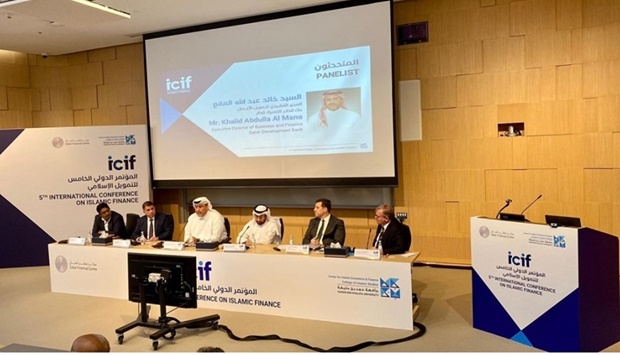The discussions provided a thought-provoking framework for advancements in the field at the International Conference for Islamic Finance (ICIF) 2022, which was hosted by the College of Islamic Studies (CIS), part of Hamad Bin Khalifa University (HBKU) recently.
The two-day event provided an impetus for debate on the emergence of Islamic fintech as the fastest-growing financial technology segment in the Organisation of Islamic Co-operation member countries.
Held under the theme ‘Framing the next decade of Islamic economy and finance: linking values and impact in the era of digitalisation’, the event helped position Doha as a hub for contemporary Islamic thought and discussions on the less-than-realised potential of the Islamic finance industry.
Three key sessions were held on the first day. The first session addressed the vision, policy, and ethical foundations of Islamic finance.
Session two covered the nexus of technology advancement and Islamic finance in light of emerging Shariah-issues, while third session discussed linking value and impact through digital solutions.
Day two highlights included a panel discussion titled ‘The next decade of Islamic finance and economy’ with session four covering decentralised finance: prospects and challenges.
It culminated in session five, which touched upon the impact of compliance on Islamic economy and finance.
Yousuf Mohamed al-Jaida, Chief Executive Officer, Qatar Financial Centre (QFC), conference’s sponsor; Fahad al-Khalifa, Group CEO, Masraf Al Rayan; Dr Michael J. Benedik, Provost, HBKU; Dr Recep S?entu?rk, Dean, CIS, HBKU were among the high-level attendees.
Al-Jaida said: “We extend our appreciation to HBKU for once again partnering with us to host this excellent forum for high-level dialogue linking industry and scholarly perspectives. The focus on digitalisation and the opportunities for Islamic finance to catalyse the green economy and sustainable development agenda was very apt.
“It underscored where our priorities should be to realise the industry’s full growth potential. Pushing for innovation, technological advances, and sustainable financing instruments are fundamental to unlocking market access to Islamic finance, and with that, putting in place the policies and regulations that can stimulate growth.”
Dr Syed Nazim Ali, director (Research Division) and the Center for Islamic Economics and Finance, CIS, and conference chair, said, “For the fifth consecutive year, ICIF brings to the fore discussions that help shape the future of Islamic finance and the economy, as well as the need to consider, adopt, and implement Shariah-compliant technological tools that are designed to be workable within the margins of Islamic virtue.
“It was an honour to welcome Qatar’s best-informed academics, researchers, students, industry leaders, practitioners, and policymakers to this edition of the conference as a continuation of the illuminating discussions we have had in previous years.”

